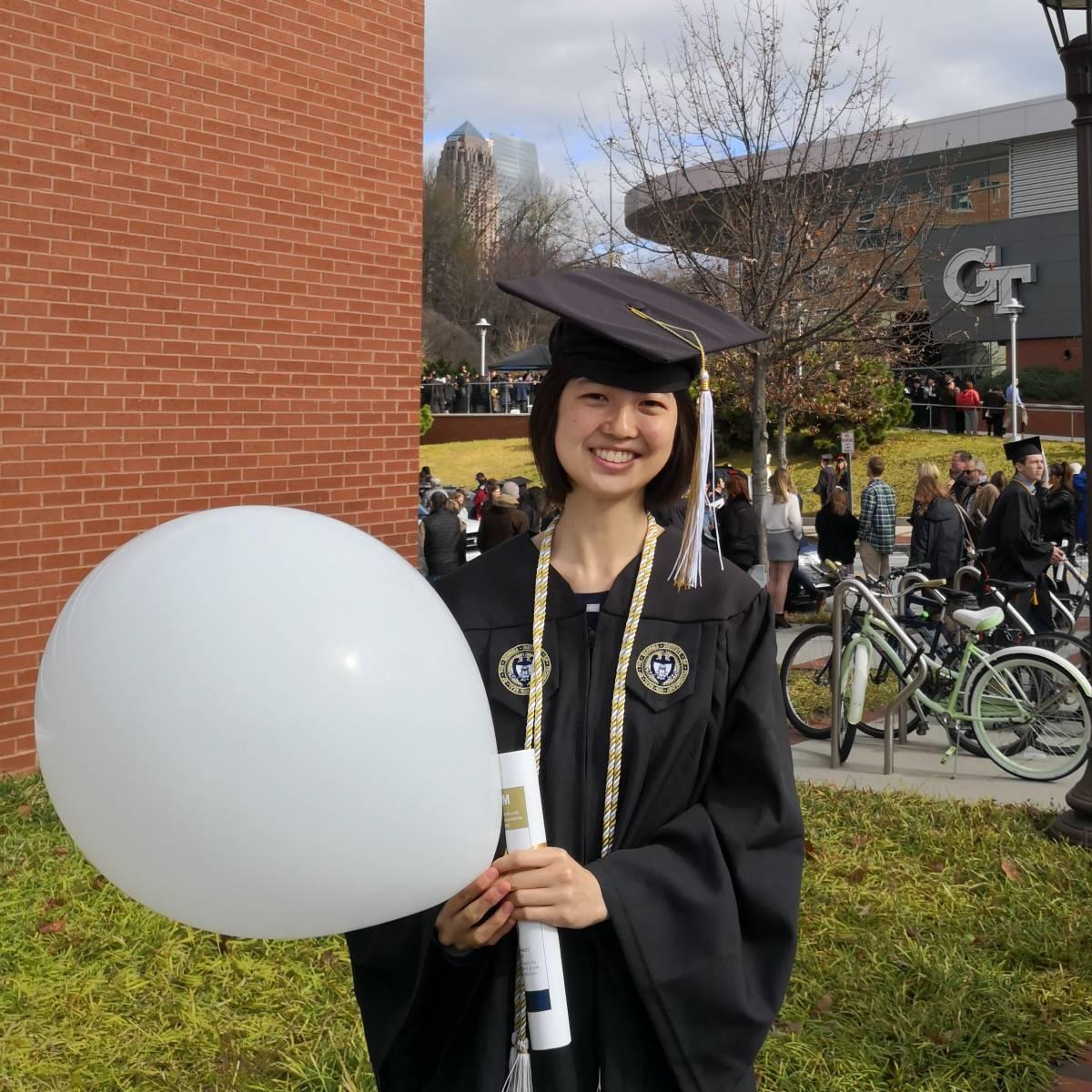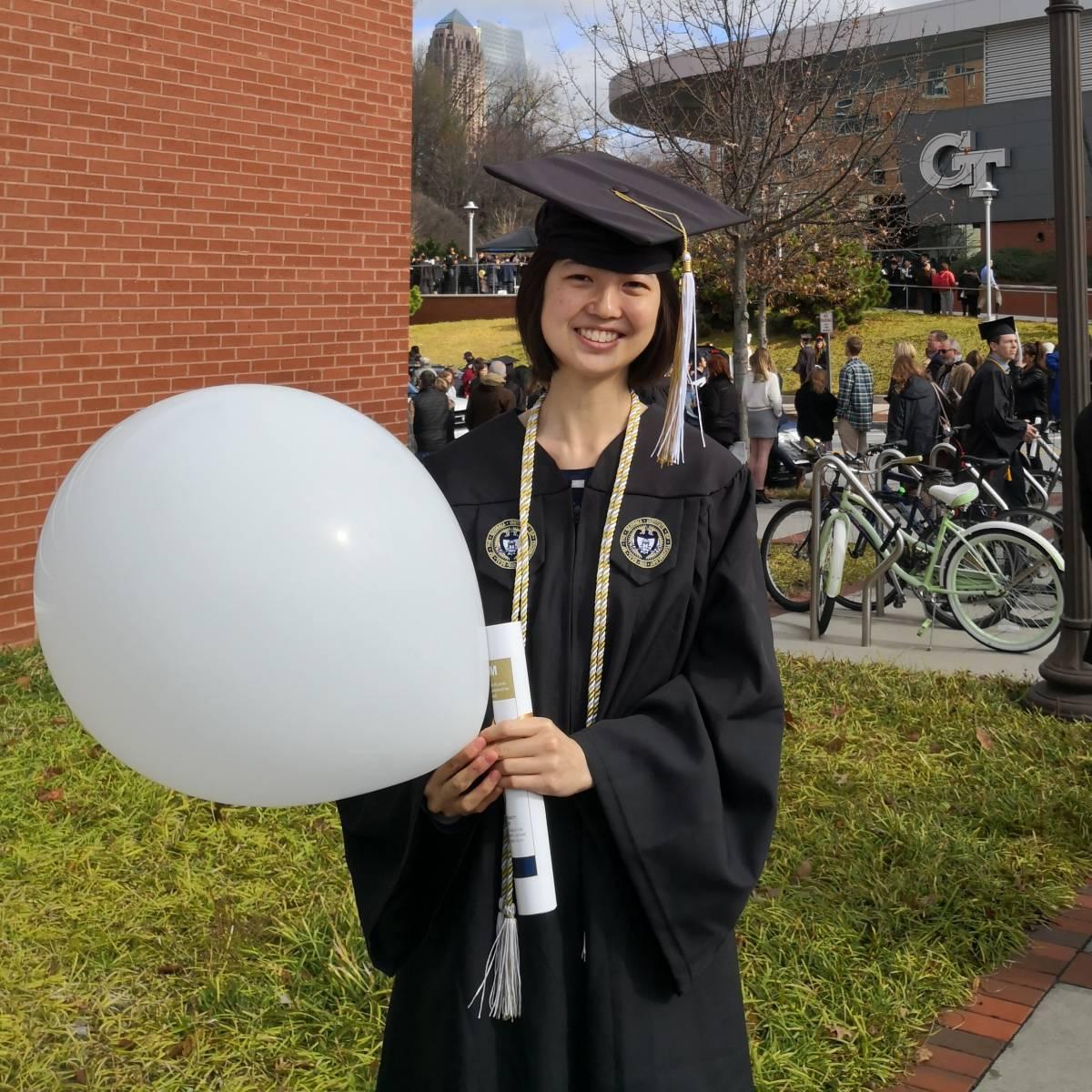
This year, recent Materials Science and Engineering graduate Xueqiao Wang received the Davidson Family Tau Beta Pi Senior Engineering Award for her exceptional accomplishments in academics, research and community impact.
The Tau Beta Pi Award is seen as one of the highest awards an undergraduate engineering student can receive during their time at Tech. It recognizes the selected student for academic excellence, leadership and service and is normally given during the Institute-wide Student Honors Celebration, which this year has been postponed due to COVID-19.
The Tau Beta Pi Cup is supported by the family of Narl Davidson, who served as associate dean in the College of Engineering until 2006. Wang will receive an engraved gold cup and $5,000 in recognition of her accomplishments.
“I really want to thank my professors in both MSE and throughout the College for all of these great and precious opportunities,” said Wang. “It’s through these opportunities that I was able to do all this research and learn about the different areas of materials science.”
Since her graduation in December 2019, Wang has been doing research in the Materials Science Division at Lawrence Livermore National Laboratory until she begins graduate school in August.
Wang says that during her time at Tech, one of her favorite things about MSE was that it enabled her to explore the different possibilities within the broader field. Research is her chosen mode of exploration.
“Research is learning things that nobody knows about, so you're actually exploring the frontier,” explained Wang. “It's really challenging. There are so many problems, and it requires you to think really actively and then work with others.”
Before Wang graduated from Georgia Tech in December 2019, she spent a great deal of her time as an undergraduate in the lab. She held two research positions – one at the lab of Assistant Professor Josh Kacher studying the behaviors of metals, and another at the lab of Regents' Professor & Smithgall Institute Endowed Chair C. P. Wong studying polymer composites.
During her summers, Wang stayed just as busy. She did research internships at the Technical University of Munich in Germany and the Paul Scherrer Institute in Switzerland. It was at one of these internships that she discovered that she was especially interested in the magnetism and physics components of MSE.
“Magnetism is a very old field, but it's still very mysterious,” said Wang.
“Magnetism is a very old field, but it's still very mysterious,” said Wang, who says her area of interest could be applied to making electronics faster and more efficient. “A lot of things are unknown, and I think it's really interesting both on a theoretical level and also on the actual experimental research level of what we can explore with it.”
Wang was also instrumental in the development of the Materials Innovation and Learning Laboratory (MILL), which is now a fully-functional makerspace within MSE. In addition to helping the MILL get up and running, she worked with the Society of Women Engineers to host visits to campus for middle schoolers in order to introduce them to scientific experiments and get them excited about STEM education.
Through Wang’s time at Georgia Tech and her long journey to discover her true calling, she has discovered a lot about herself and her abilities. She wants current students at Georgia Tech to remember that they are more exceptional than they think they are.
“People say that Tech is a very challenging place. It is, but all the students are amazing too and they can do whatever they might want,” said Wang.
